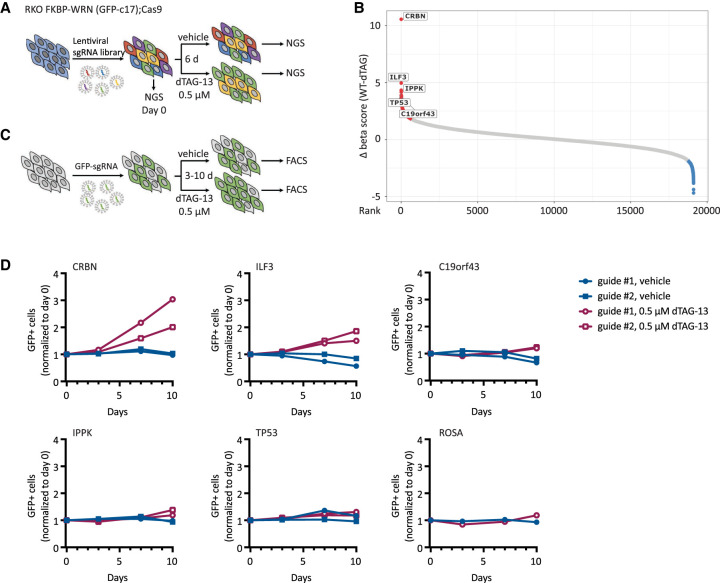Figure 5.
MSI-H cancer cells do not readily adapt to WRN deficiency. (A) Schematics of the CRISPR screening strategy used in RKO c17/Cas9 cells to identify genetic hits that could potentially confer resistance to WRN loss. (B) Candidate resistance genes identified in the screen. (C) Schematics of growth competition assays used to validate candidate resistance genes. (D) Growth competition assays confirmed that deletion of CRBN and, to a lesser degree, ILF3 rescued cytotoxicity caused by acute loss of WRN in RKO c17/Cas9 cells. Note that CRBN encodes the cellular E3 ubiquitin ligase that is engaged by dTAG-13 to promote FKBP-WRN degradation. One of two independent experiments is shown.

